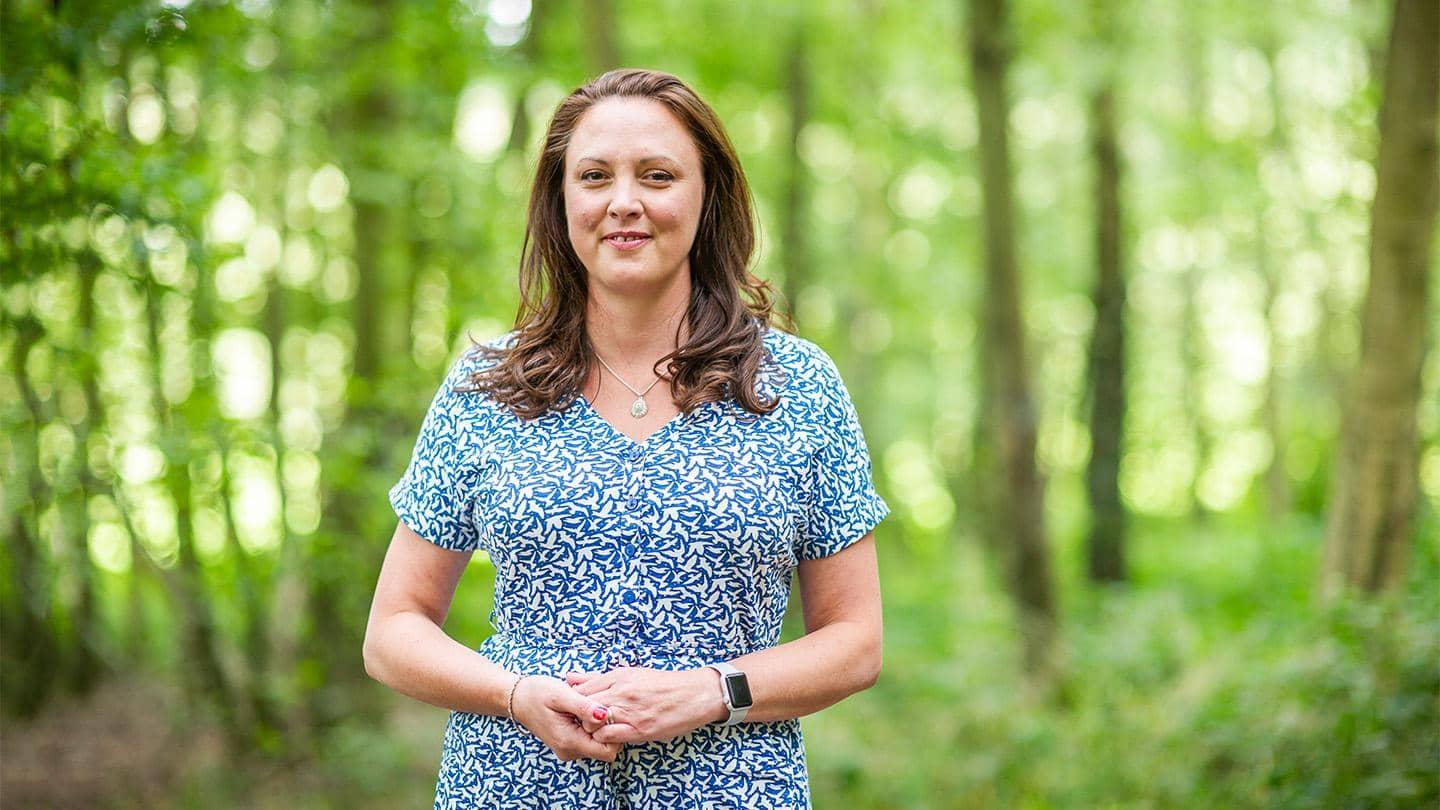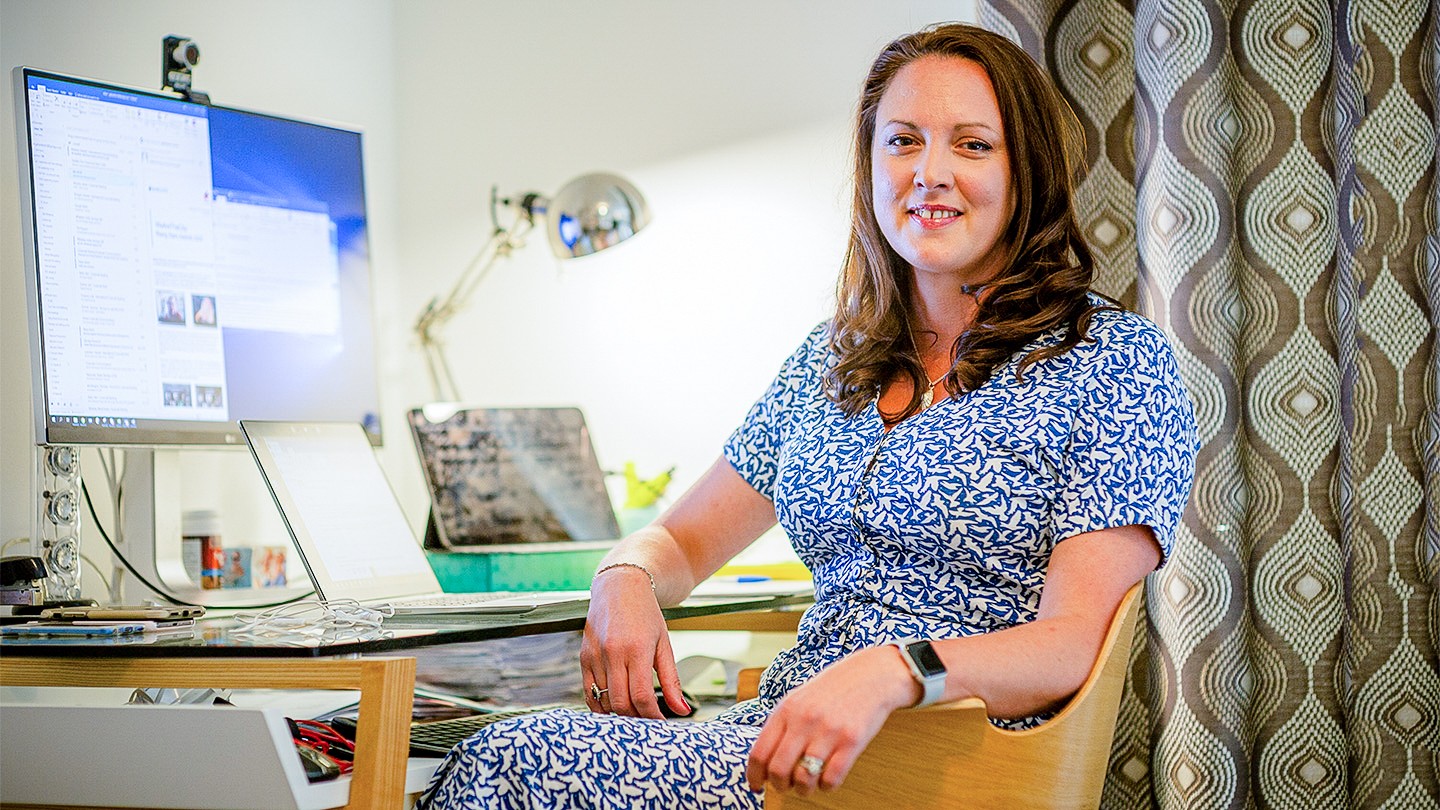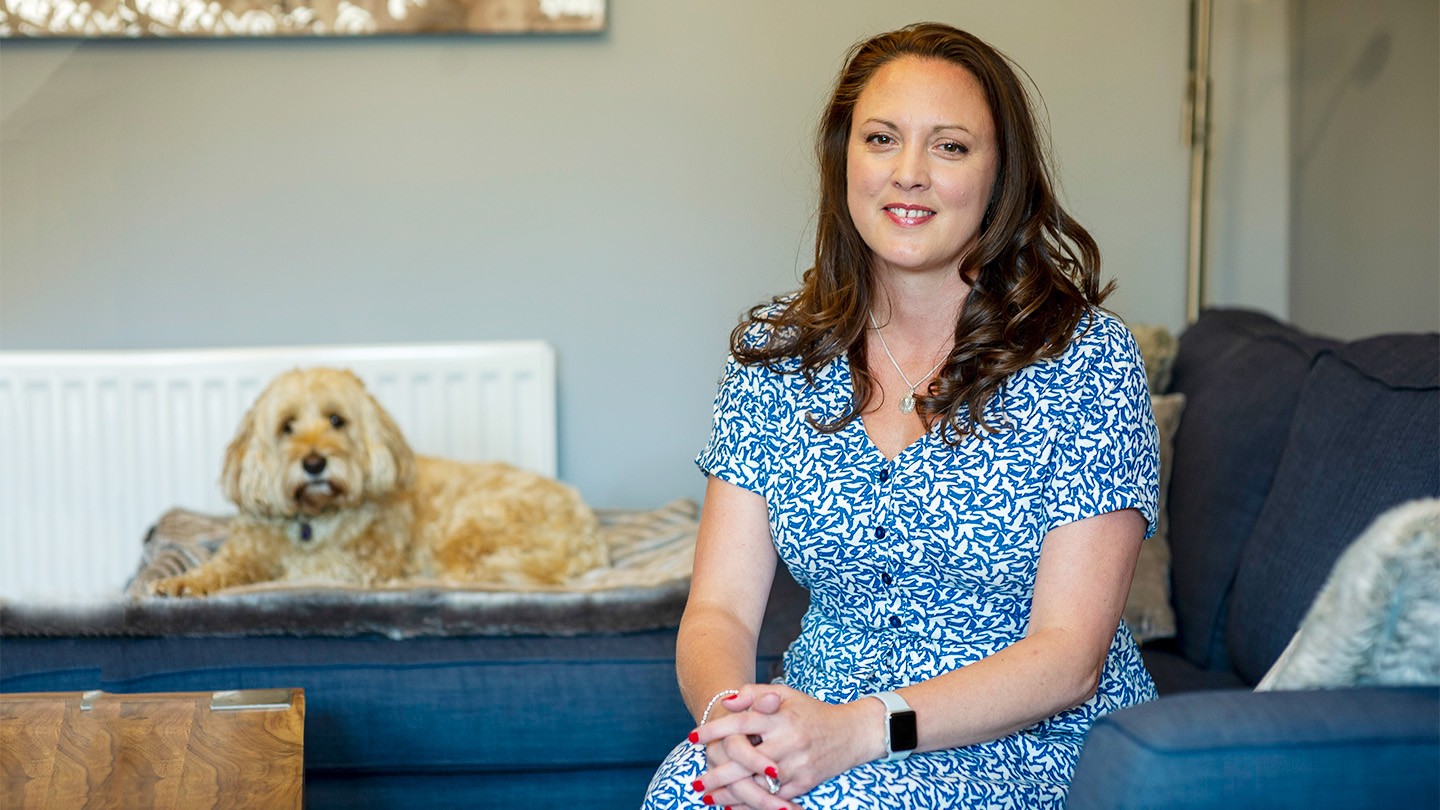
Culture
“We need to break down the banking culture of not showing weakness”
Gail Erskine, Head of Europe Subsidiary Banking, explains how her upfront approach is breaking down an outdated culture of “not showing weakness”, reflects on balancing a full-time job and home-schooling two children in lockdown – and sheds light on how perceptions of gender have evolved over her 19-year career at Barclays.
“The finance industry was a very different place 19 years ago. The concept of promoting women and gender diversity was embryonic.”
Gail Erskine is thinking back to her earliest days in banking, in a career that has seen her progress from a Barclaycard graduate to her current role as Head of Europe Subsidiary Banking at Barclays Corporate Banking.
“I had to develop a shell to deal with some of the banter in the office – the sort of thing that wouldn’t be acceptable or might shock us today,” she reflects. “It’s funny because back then I couldn’t imagine doing a full-time banking role and also having a family. And yet here I am doing it.”
I couldn’t imagine doing a full-time banking role and also having a family. And yet here I am doing it
Head of Europe Subsidiary Banking, Barclays Corporate Banking

Barclays’ Gail Erskine discusses managing a full-time job while home-schooling her children during lockdown.
Part of the reason she couldn’t imagine this future for herself, she says, is because there were few senior female colleagues to ask about how to balance motherhood and a career.
Today, Gail is a role model, who is helping promote a policy of openness – including not hiding the fact the kids are in the background when she’s on a conference call.
Such honesty has long been her policy. She cites her experience of negotiating maternity conditions while working at Barclays’ Dubai office, which taught her the value of being open about her needs. Having become pregnant unexpectedly, she realised she had no idea what her maternity leave entitlement was. On consulting her contract, she discovered it was only 45 days.
“I went to speak to my line manager immediately,” she remembers. “We agreed that I could take three months and then come back – but I actually ended up taking 10 months with my little girl. I was so delighted Barclays was able to give me the space I needed. The contract was one thing – but the human side of it was entirely another.”
After returning to paid work, Gail was keen to ensure the same things didn’t happen to other women and set about trying to alter the policy with HR’s assistance. “I told the HR Director that this could have been really stressful for me, and that something needed to change. It did – we changed the, then Barclays Africa, maternity policy so everyone would get six months of leave automatically.”
Leading from the front
This isn’t the only example of Gail pushing for change within the bank. After moving out of London, she decided to work one or two days a week from home in order to spend more time with her children – an arrangement that, she says, “gave me the snippets of time out that I needed. I could work from home so could still make my child’s school assembly.”

Gail is a dynamic working champion and believes “wellbeing is for everybody”.
I think as a society, lockdown has taught us how disruptive it can be for the economy and businesses if we don’t have excellent childcare available to all
Head of Europe Subsidiary Banking, Barclays Corporate Banking
She encourages her entire team to take a similar approach. “I believe in leading from the front,” she says. “Dynamic working was a part of my working life long before lockdown – though stepping it up to five days a week is a different thing all together and has needed some adjustment.”
Gail adds that lockdown has taught her much about the barriers facing women and working parents in general. “The biggest thing that I have learned from lockdown is how utterly dependent I am on childcare to maintain my balance. I think as a society, lockdown has taught us how disruptive it can be for the economy and businesses if we don’t have excellent childcare available to all,” she says.
Gail has prioritised supporting colleagues who are parents by ensuring that acknowledging the difficulties of home-schooling and working full time is “always on the agenda” – including being transparent about her own challenges.
“I have good days and bad days. There have been times when I felt like I couldn’t do my job 100% and I also couldn’t look after my kids 100%. I came to the conclusion that any home learning is better than no home learning – we didn’t set the bar too high and compromises have to be made.
“There have been moments where I’ve been quite overwhelmed – and I’ve had to recognise that and take a step back to gain perspective,” she adds.
Gail shared this experience at a recent wellbeing event she organised. Joined by 60 of her colleagues, she encouraged senior leaders to share personal stories on the topic. “We wanted to make the point that wellbeing is something for everybody – and the dialogue hasn’t stopped since,” she says.
Asked what she does to look after her own wellbeing, she laughs and says: “I do often have to give myself a talking to. But the main thing is I carve out an hour at lunchtime every single day for outdoor exercise which I spend with the children and family dog.”
Admitting weakness
Many people fear that lockdown has damaged their chances of professional development, given that it’s harder to “keep up our profile” virtually. Gail says it’s therefore vital that senior leaders give members of the team opportunities to speak and share their successes: “Women can have a tendency not to put themselves forward even when there’s an opportunity to do so – we need to keep ourselves visible.”
For some time, she has been helping to organise breakfasts, events and workshops on issues such as negotiating and ‘imposter syndrome’ – both things that her female colleagues say they appreciate support around.
But Gail makes a point to show that she hadn’t found all the answers. “It’s about sharing my own experiences to help other women. Colleagues don’t necessarily expect you to do so, as you’re a member of the leadership team who looks in control all the time.
“Traditionally in banking there’s been a culture of not showing weakness – but we have to break that down by being open and honest.”